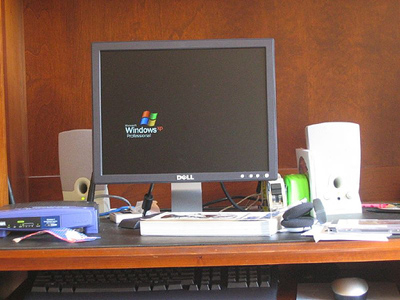
If you are considering a franchise as your next career move, you probably already understand a number of the benefits to being a part of a franchise system. However, as each franchisor will offer different levels of assistance, it can be confusing to someone trying to evaluate a potential franchise purchase.
Since the value of a franchise is that the system has been developed to have replicable results, you will want any system you evaluate to score high in those areas that are important to the success of your unit.
Location – Location – Location
If your franchise is going to be site-dependent, the franchisor should, at a minimum, provide guidelines for selection of a site and the general terms of a lease agreement applicable to this type of location. Some franchisors will provide company personnel who will help you search for and select a site while some even work with national real estate brokers to find the best properties. If your franchisor provides help in site selection and lease negotiation, you are working with a good company.
Build-out Assistance
A typical franchise will provide each franchisee with instructions for the design and lay-out of the store along with details of where to purchase the components. As group buying power an important benefit of being part of a franchise company, you should expect to pay less for these components as a franchisee than if you purchased them as a sole proprietor.
At the high end of franchisor build-out assistance are those companies with design groups who help the franchise design the store, sometimes with such high-tech devices as CAD (computer-aided design) systems. Also, some franchisors will even hire a construction team to do the build-out and then deliver the components right to the new business.
Initial Training
The majority of franchised businesses do not require a new franchisee to have previous industry experience, primarily because they believe they can train a person with good business acuity to run the business successfully. A good training program is therefore essential. Most franchise companies will bring the franchisee to corporate headquarters for classroom training and some will allow time for hands-on training at a nearby franchise unit or corporate store.
This initial training should cover all aspects of the operations of the business, including book-keeping, record-keeping, operations, recruiting and retaining employees, and finding customers. The franchisee should receive an operations manual and get answers to any remaining questions she may have so that she feels confident she will be able to get her business up and running.
Some franchisors will provide corporate or field personnel to work side-by-side with the franchisee during grand opening and during the first week of operations, ensuring the franchisee has mastered the training and achieves a comfort level with the business. Franchisors that are willing to train a franchisee’s manager along with a franchisee are providing a value-added service.
On-going Training and Assistance
A good franchise business will continue to improve and evolve with time and the addition of new units and on-going training is often a necessity. Similarly, a good franchisor will offer continuing educational opportunities to franchisees as well as providing on-going assistance as needed. Many franchisors provide a help-line for issues that come up in the field and some will make regular visits to the franchisee’s location. A company that provides conferences or other opportunities for a franchisee to connect with fellow owners has the best interests of their franchisees in mind as these opportunities allow for creative problem-solving, the sharing of best practices and can reenergize the business focus.
Marketing Expertise
Your franchisor should provide you with a complete marketing plan for your new business that covers grand opening through at least the first 3-6 months. Since the franchisor has every reason to want you to succeed, a savvy franchisor will do much more. Many will provide you with the actual marketing materials, professionally produced. These may include pieces such as posters, banners, direct mail postcards, newspaper ads, and maybe TV and radio spots, all of which can be customized for your location.
Permits, Compliances and Other Legal Issues
Depending on the type of business, you may also need assistance in dealing with local governmental agencies for various permits. If your franchise involves food or beverage, there are numerous health-code compliance issues you will need to handle. Your franchisor should provide help in these areas so that your opening is not held up waiting for permits to come through.
There are several ways to find out how the franchisor handles these support items. The first, of course, is that you will want to ask questions about each as part of your investigation into the business. The second step is to talk to existing franchisees about the support they received and how well prepared they were to open and run the business.
Be sure to ask these franchisees if they felt there was anything missing from the training and support they received and if there is anything they wish had been more complete or done differently. If the company you are investigating scores well with these franchisees, you can be confident you will be happy with the support they will provide to you.
 Kimberley Ellis is the President of Bison.com, a leading online resource for franchise and business opportunities. She has been quoted as an industry expert in USA Today, Wall Street Journal and a variety of local and regional publications regarding trends in business and franchising. Kim combines her entrepreneurial spirit with a diverse background in marketing and operation to help others succeed in franchising.
Kimberley Ellis is the President of Bison.com, a leading online resource for franchise and business opportunities. She has been quoted as an industry expert in USA Today, Wall Street Journal and a variety of local and regional publications regarding trends in business and franchising. Kim combines her entrepreneurial spirit with a diverse background in marketing and operation to help others succeed in franchising.
Category: How-To Guides
 Celebrity endorsements are a staple in advertising, with more than 20 percent of all ads today featuring a famous face, voice or likeness. Even smaller businesses are using celebrity spokespersons. The reason is simple: Celebrities sell. Consumers pay attention to celebrities because they are attracted to the familiar. But celebrities don’t have to be major national names. Local and regional “celebrities” can also help pitch a marketing message for your small business. Three ways your business can use a celebrity spokesperson are:
Celebrity endorsements are a staple in advertising, with more than 20 percent of all ads today featuring a famous face, voice or likeness. Even smaller businesses are using celebrity spokespersons. The reason is simple: Celebrities sell. Consumers pay attention to celebrities because they are attracted to the familiar. But celebrities don’t have to be major national names. Local and regional “celebrities” can also help pitch a marketing message for your small business. Three ways your business can use a celebrity spokesperson are:
1. Advertising: Celebrities can pitch your product via print, television, radio and even online
2. Appearances and events: Celebrities can make personal appearances for your business at events ranging from charity fund-raisers to grand openings.
3. Media opportunities: your spokesperson can speak on your behalf on TV talk shows or at press conferences, trade shows or other media events.
Here’s the 411 on getting some star power:
Define your objectives
Determine what you expect from your partnership with your spokesperson and how to best use their talents. Clarify your needs and expectations from the get-go.
Links and resources: Brooks International and Burns are two agencies that specialize in booking celebrity and sports talent. These talent brokers can help you assess your needs.
Find the right fit
It’s important that the spokesperson you hire is a good match for your product or service.
Links and resources: The Hollywood-Madison Group uses a proprietary database called the “Fame Index” to match businesses with appropriate talent. The Fame Index contains the names of 10,000 stars and uses 250 categories to match talent to businesses and products.
Plan well in advance
When deciding on a celebrity spokesperson for your business, start early. You should plan at least six months out. The bigger the name, the longer the lead time.
Links and resources: Celebrity Focus and The Celebrity Source are two talent agencies that can connect your company with talent and help you navigate the celebrity maze.
Consider the costs
Talent fees and celebrity endorsements run the gamut from a few hundred dollars for a single appearance by a local DJ to far more for a big star.
Links and resources: If you’re looking for major star power, you can go with Hollywood biggies like William Morris or PMK/HBH Public Relations. On a smaller scale, you can contact many local celebrities directly or through their management or their public relations agency.
Make contact
Talent agencies, entertainment marketing firms and even speakers bureaus can put you in touch with potential celebrity spokespeople. Contacting talent can be easier than you might think.
Links and resources: The Screen Actors Guild provides an actor-locator service. If you want a big-name author, call his or her publishing company and ask for the public relations department. A few have their own speakers bureaus: check out the speakers bureau at Harper Collins.
Here are a few other suggestions when hiring spokespersons:
• Don’t be afraid to ask. Maybe that certain superstar is not out of your reach or budget.
• Consider “B-List” stars who may be more available and less expensive.
• Local celebrities or athletes may turn out to be your best bet.
• Make sure you have an “out” clause in case your celebrity gets negative press or is involved in a scandal.
About the Author
 Lou Bortone is an award-winning writer and video producer with over 20 years experience in marketing, branding and promotion. As an online video expert, Lou helps entrepreneurs create video for the web at www.TheOnlineVideoGuy.com. In addition, Lou works as a freelance writer and professional ghostwriter, with a ghostwriting site at www.GhostwriteForYou.com and a blog at www.GhostwriteGuru.com.
Lou Bortone is an award-winning writer and video producer with over 20 years experience in marketing, branding and promotion. As an online video expert, Lou helps entrepreneurs create video for the web at www.TheOnlineVideoGuy.com. In addition, Lou works as a freelance writer and professional ghostwriter, with a ghostwriting site at www.GhostwriteForYou.com and a blog at www.GhostwriteGuru.com.
How To Be Super Productive
 YoungEntrepreneur: I had a meeting today with a potential client who asked me why I didn’t have my phone number on my website. I told him it was because we were getting too many inquiries and it was making us unproductive. It got me thinking about the other ways I increase my productivity and I thought I would share some ideas with you today.
YoungEntrepreneur: I had a meeting today with a potential client who asked me why I didn’t have my phone number on my website. I told him it was because we were getting too many inquiries and it was making us unproductive. It got me thinking about the other ways I increase my productivity and I thought I would share some ideas with you today.
1) No phone number on the website.
2) Set times to meet people.
3) Do all your admin on one day.
4) Get help.
5) Check email once a day.
6) Do your most important work in the morning.
6 Ways To Be More Productive And Get More Done [YoungEntrepreneur]
Successful Business Decision Making

Here’s How to Make it Easy
Some people make decisions without any difficulty, while others struggle. Are you having trouble making a decision? Do you feel overwhelmed by all the choices you have, and aren’t sure how to pick just one? No matter how big or small those decisions might be, I can teach you how to strategically:
- Define your decision and come up with alternatives
- Determine what criteria you?ll need to help you make the decision
- Make the decision
“If we wait for the moment when everything, absolutely everything is ready, we shall never begin.” Ivan Turgenev, famous 19th-century Russian novelist, poet and playwright
DEFINING THE DECISION AND ALTERNATIVES
STEP 1: What is it that you need to make a decision about? Maybe you have several choices to make, but start with one. Ask yourself a couple of questions that are applicable to your situation, such as:
“What do I want to be doing for the next 6 months?” “What business am I going to start?” “What aspect of my business do I want to grow?”
STEP 2: Determine your primary goal and write it down. For example, you might want to grow your business over the next six months. Therefore, your goal sentence might be: “I want to earn 25% more within the next 6 months.”
STEP 3: After you’ve written your goal sentence, begin brain-storming a list of ideas for how to achieve the goal. Below are some rules for brainstorming:
- Write all ideas down – ideas are neither bad or good–they’re just ideas!
- Do not judge or analyze the idea – just write it down.
- Make the process fun!
You do not have to generate a list of ideas in one sitting, but you may need to set some limits around how much time to spend creating your list. Be creative in how you capture your ideas. Carry a small notebook with you so when an idea comes to you, you?ll be prepared and write it down immediately. I put stickies (Post-It notes) and pens in my purse, car, and bedroom, so whenever and wherever I generate an idea I have a way to capture it. When I?m ready, I collect the stickies and add them to a master list I keep in my office. Just do whatever is easiest for you!
After you feel you’ve completed your options list (or when the time you’ve given yourself to make the list has run out), ask someone you trust to read over your ideas. This person needs to be someone who has a positive attitude and is supportive of your efforts! The person may come up with some options you hadn?t considered. Write them down! Remember, you’re not judging the ideas–just recording them at this stage.
DETERMINING THE CRITERIA AND EVALUATING EACH OPTION
STEP 4: Identify no more than 4 or 5 criteria that you will use to determine how well your options achieve the goal you’ve established.
Decision criteria provide checkpoints to measure your options against your goal. Typical criteria fall into two categories:
Do-ability (do I have the money, time, expertise?)
Likelihood of Success (do they meet the goal in time, revenue, fun factor?).
STEP 5: Using the criteria you’ve defined, evaluate each option. This process can be as simple, or complex, as you desire, and may be qualitative or quantitative. You may need to allow some time to experiment a bit with some ideas to test them out and determine how well they meet each criteria.
MAKING THE DECISION
STEP 6: Sometimes the winner(s) is obvious you’ll just pick it and go with it. Or, you may immediately notice certain ideas drop to the bottom of the list and just need to be deleted because they do not support your business needs. When one option is not standing out among the others, you may have to prioritize the options by weighting the criteria to help you evaluate the alternatives and make your decision.
BONUS STEP: Keep in mind, just because an idea may not fit with your current focus; it may serve you later. Create a place to store those ideas–an “idea vault” to tap into the next time you need good ideas!
Terri’s keys to successful decision-making
- Write it all down!
- Clarify the decision you are making
- Know your goals
- Be creative in coming up with options
- Trust your gut
- Don’t procrastinate!

Each month, on the first Friday of the month I meet with my mastermind group. It’s a small group and we’ve been together for about 5 years. We begin each month writing down our list of promises – what we intend to take action on in the next 30 days.
Well, I just couldn’t get my arms around what I wanted to focus on this month. It’s not that I can’t think of things to do, I’ve got plenty.
Nothing felt particularly inspiring – no passion, no real juice!
Then I realized that my focus has been divided by things I’ve been meaning to follow up on. My email inbox is filled with more red flag on emails that need follow up and each time I read my emails I am reminded that I still haven’t gotten to them. The flags keep multiplying and they have really piled up.
Not only that, I have tons of reports, ebooks, music audios I’ve received from free promos as well as things I’ve bought that I haven’t even looked at or listened to. I have no idea of their real value because I haven’t made the time to go through them. And I am constantly receiving invitations for more stuff!
Now, I’m pretty good at decluttering and I can see I’ve let things pile up that are affecting my ability to focus on what I really want to do for marketing and growing my business. So, I am dedicating the month of July to clean up my computer files NO EXCUSES.
If you’re feeling a lack of focus, ask yourself if you need to do some computer decluttering.
This includes:
1. Emails that require a response. I recommend staying on top of your emails by responding within 48 hours max.
2. Creating email folders with common themes and sorting through your files to organize them into new folders (great for both your email and computer files). Remember to declutter the folders regularly too. Moving them out of your inbox can invite clutter accumulating in your folders.
3. Weeding through your emails and deleting the ones you no longer need.
4. Backing up important folders and files regularly. I do this each time I add something new. Organize them into themes (Marketing, business development, client resources) so you can find them!
5. Reviewing your cache of reports, pdfs, and audios you have been meaning to read and listen to. Schedule time each day or each week in your calendar to sift through the materials.
6. Dumping whatever materials you know you won’t use for yourself or clients.
7. Staying alert to adding more stuff that you really don’t want or need. I know the tendency is to grab material especially when it’s free. Ask yourself, “Is this really info I need and will make use of?” If not, let it go. I guarantee you that opportunities will keep comin around for you to find material you need if you start having buyer’s (or keeper’s) regret.
I recommend decluttering your computer at least once per month to stay productive and focused.
Well, gotta go. Have some decluttering to do. Leave me a comment. Tell me what you think of this post!